Meet the presenters of Di Froyen: Celebrating the Women of Yiddish Literature
Join us for the celebration November 4-6, 2022.
Our fall weekend program, Di froyen: Celebrating the Women of Yiddish Literature, is two months away and will feature a wide range of scholars, writers, artists, and translators. This unique gathering will bring together some of the presenters from the original 1995 Di froyen conference with the next generation of leading voices. Throughout the weekend we will honor those who paved the way; celebrate the vitality of Yiddish women’s literature, scholarship, and activism today; and look ahead to the dynamic future of Yiddish women writers, translators, and scholars. Read on for more information about our presenters.
Irena Klepfisz
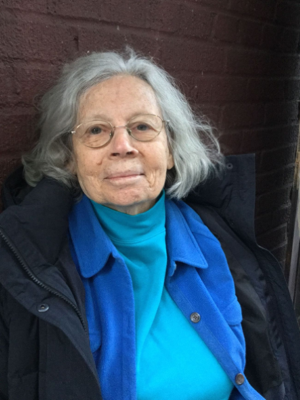
Poet Irena Klepfisz was born in the Warsaw Ghetto in 1941. She survived the war hiding in an orphanage and later in the Polish countryside with her mother. After the war they lived in Łódź and Sweden before settling in New York in 1949. Klepfisz’s poetry broke new ground in its brazen lesbian voice, while also finding new ways to poetically investigate the trauma of the Holocaust. Klepfisz played a key role in the emergent Jewish lesbian movement starting in the 1970s. She has been dedicated to the recovery and transmission of women’s writing in Yiddish, as an active scholar, translator, and teacher. Her own poetry engages the Yiddish language, writing bilingually to create a Jewish feminist poetics for the past and present.
Agi Legutko
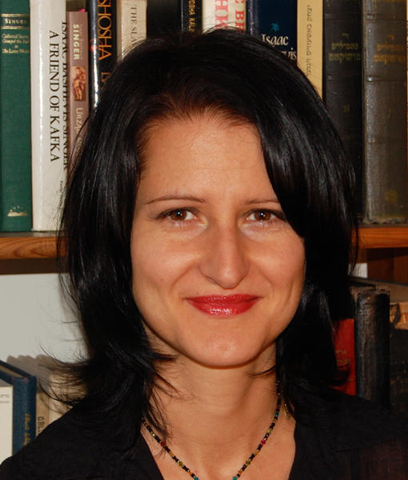
Agi Legutko specializes in modern Yiddish literature, language, and culture, women and gender studies, spirit possession in Judaism, as well as in American and European modern Jewish literature, theater, and film. Her research interests also include trauma, memory, performance, and the body represented in modern Jewish culture. She is interested in new approaches to content-based foreign language teaching, second language acquisition in the post-method era, as well as in exploring the possibilities offered by digital humanities and technology integration in Yiddish language instruction.
She received her Ph.D. (2012, with distinction), M.Phil (2008), and M.A. (2006) in Yiddish studies from Columbia University, and her M.A. (2002) in English Language and Literature and Translation Studies from Jagiellonian University in Krakow, Poland. Before joining Columbia University, she was a Visiting Assistant Professor in Yiddish Language, Literature and Culture at the University of Maryland.
Ellen Cassedy
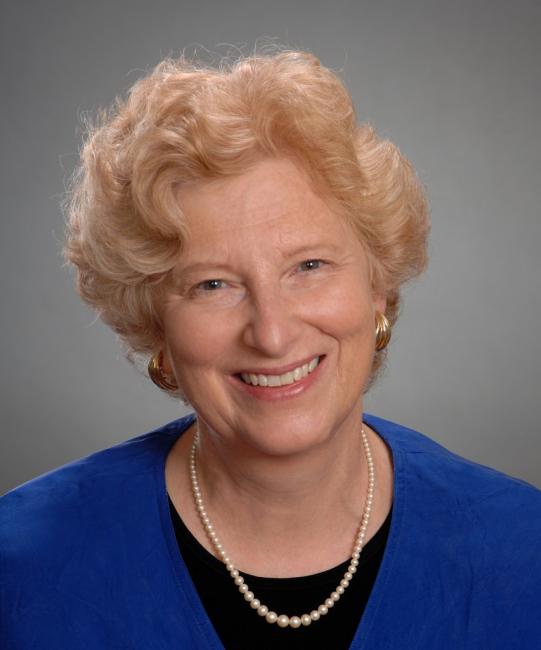
Ellen Cassedy, the author of We Are Here, is a frequent speaker about the Holocaust, Lithuania, and Jewish culture. Her book began when she set out to connect with her Jewish family roots. In a searing terrain of memory and moral dilemmas, she explored how people in Lithuania – Jews and non-Jews alike – are engaging with their Nazi and Soviet past. In the end, she found hope for a more tolerant future. We Are Here is the winner of numerous awards and was shortlisted for the William Saroyan International Prize for Writing. Ellen’s Tips for Writers have appeared on SheWrites.com and Savvy Book Marketer. Her play, “Beautiful Hills of Brooklyn,” celebrates the spare beauty of a small but important life. Based on the diary of an actual elderly woman, it was adapted into a short film that won numerous awards and qualified for an Academy Award nomination. Ellen is the translator of Oedipus in Brooklyn and Other Stories by Blume Lempel (with Yermiyahu Aaron Taub) and On the Landing: Stories by Yenta Mash. Ellen is a former columnist for the Philadelphia Daily News, a former speechwriter in the Clinton Administration, and the author of two books for working women. Her work has appeared in Hadassah, the Jewish Daily Forward, the Huffington Post, Ha’aretz, the Jewish Telegraphic Agency, Lilith, Bridges, Polin, and Shofar: An Interdisciplinary Journal of Jewish Studies. She lives near Washington, D.C.
Kathryn Hellerstein
Kathryn Hellerstein is Professor of Germanic Languages and Literatures, specializing in Yiddish, and the Ruth Meltzer Director of the Jewish Studies Program at the University of Pennsylvania. Her books include a translation and study of Moyshe-Leyb Halpern's poems, In New York: A Selection, (Jewish Publication Society, 1982), Paper Bridges: Selected Poems of Kadya Molodowsky (Wayne State University Press, 1999), and Jewish American Literature: A Norton Anthology, of which she is co-editor (W. W. Norton, 2001). Her monograph, A Question of Tradition: Women Poets in Yiddish, 1586-1987, won the Barbara Dobkin Prize in Women’s Studies from the Jewish Book Council for the 2014 National Jewish Book Award, and the Modern Language Association 2015 Fenia and Yakov Leviant Prize in Yiddish Studies. Hellerstein’s translations, poems, and many scholarly articles on Yiddish and Jewish American literature have appeared in journals and anthologies, including American Yiddish Poetry: A Bilingual Anthology (University of California Press, 1986), to which she was a major contributor. Hellerstein has received grants from the NEA, the NEH, and the Guggenheim Foundation, as well as from the Hadassah-Brandeis Institute, the Marcus Center at the American Jewish Archives, and the Center for Jewish Studies at Harvard. Her Women Yiddish Poets: An Anthology, is forthcoming from Stanford University Press. Hellerstein is currently writing a book, China through Yiddish Eyes: Cultural Translation in the Twentieth Century. In October 2015 Kathryn participated in poetry talks at Penn's Kelly Writer's House.
Faith Jones
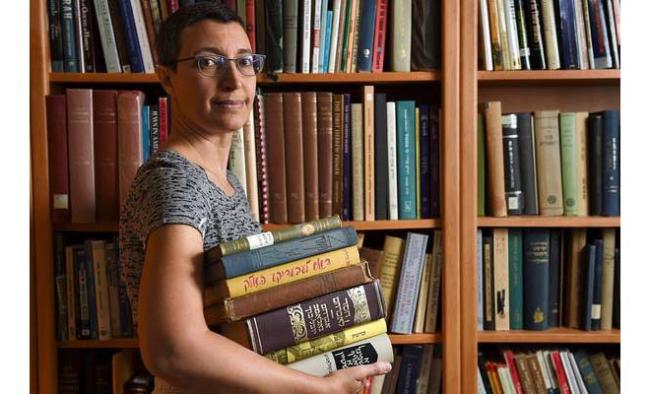
Faith Jones currently serves as Library Director of Columbia College in Vancouver, British Columbia. She was previously head of Public Services at the New Westminster Public Library, and also worked as a librarian at the New York Public Library, where she managed a reference unit and was a project manager for both digital and archival projects. In 2014, she completed an MA in Canadian Jewish History at the University of British Columbia, focusing on Yiddish culture in Winnipeg. Her current project is a book-length translation of short stories by the Soviet (later Israeli) writer Shira Gorshman, who examines Jewish and Soviet life through a gender and class lens. She was a 2015 Yiddish Book Center translation fellow and is a frequent contributor to Pakn Treger.
Amanda (Miryem-Khaye) Seigel
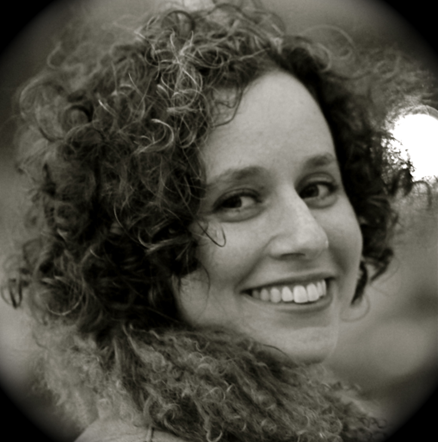
Amanda (Miryem-Khaye) Seigel, is a Yiddish singer, songwriter, actor and researcher in Yiddish culture who “exemplifies the attempt to bring a centuries-old language and culture into the contemporary world” (New York Times). A fluent Yiddish speaker, Miryem-Khaye has performed, lectured and taught at Klez Kamp, Klez Kanada, Yiddish New York, Yiddish Australia, Seminarium języka i kultury jidys (Poland), and La Kehile (La Comunidad Ashkenazí de México), among others. She’s performed with New Yiddish Rep, Hankus Netsky‘s Hebrew National Salvage, the Folksbiene (National Yiddish Theatre), and shared the stage with many other luminaries of the Yiddish and klezmer scene. By day, she is a librarian in the Dorot Jewish Division, New York Public Library, where her research specialties include Yiddish language and culture and American Jewish history. She is co-author (with Dr. Stephen D. Corrsin and Kenneth Benson) of the NYPL book Jews in America: From New Amsterdam to the Yiddish Stage, as well as frequent research blogs and articles in English and Yiddish. She completed advanced Yiddish studies at YIVO Institute for Jewish Research, where she also received the Joseph Kremen Memorial Fellowship for her research project “The Broder Singers: Forerunners of the Yiddish Theater”. She released her first CD of original and adapted songs, Toyznt tamen=A thousand flavors, in 2015.
Anita Norich
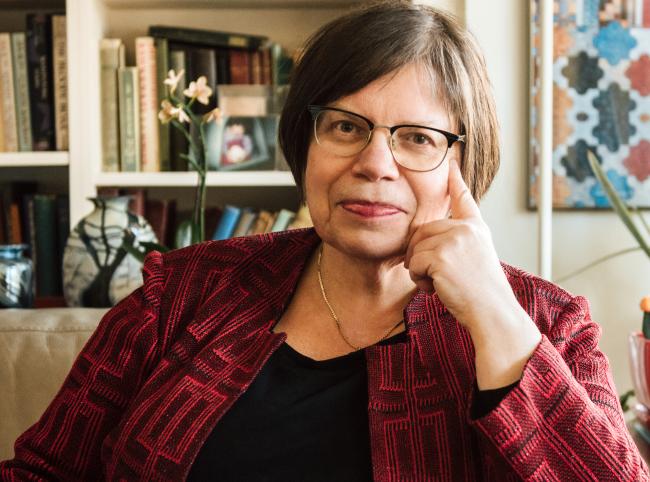
Anita Norich is Collegiate Professor Emerita at the University of Michigan. She is a scholar and translator of Yiddish literature who has written and taught about American Jewish and Yiddish literature and literature of the Holocaust. She earned her Ph.D. in Victorian literature from Columbia University and studied Yiddish literature at the YIVO Institute for Jewish Research in New York and the Hebrew University in Jerusalem. Norich’s books include: The Homeless Imagination in the Fiction of Israel Joshua Singer; Discovering Exile: Yiddish and Jewish Culture in America During the Holocaust; Writing in Tongues: Translating Yiddish in the 20th Century; and a translation of Kadya Molodovsky’s A Jewish Refugee in America. She is also co-editor of Gender and Text in Modern Hebrew and Yiddish Literature; Jewish Literatures and Cultures: Context and Intertext; Languages of Modern Jewish Cultures: Comparative Perspectives.
Jennifer Sartori
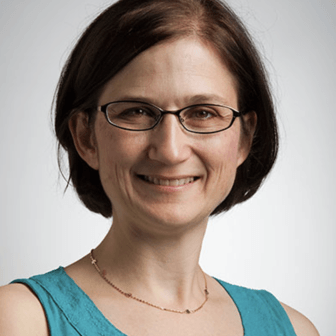
Jennifer Sartori (she/her) brings years of experience in public history, Jewish studies, and feminism to her work as Communications Director and Editor of JWA's Shalvi/Hyman Encyclopedia of Jewish Women, an extensive revision of Jewish Women: A Comprehensive Historical Encyclopedia, released on CD-ROM in 2006 and available on the JWA website since 2009. She received her BA in History with a concentration in Feminist and Gender Studies from Haverford College and her MA and PhD in History from Emory University. Jenny taught at Northeastern University for thirteen years and served as Associate Director of the Jewish Studies program. Prior to joining the Northeastern faculty, she served as Director of the Women of Valor program and Director of Education at JWA. Her own research has focused on the shaping of modern Jewish identities, from her graduate work on the education of Jewish girls in 19th- and 20th-century France through her current study of adoption and Jewish identity in the United States today. She is also Co-Director, with Dr. Jayne Guberman, of the Adoption & Jewish Identity Project.
Naomi Seidman
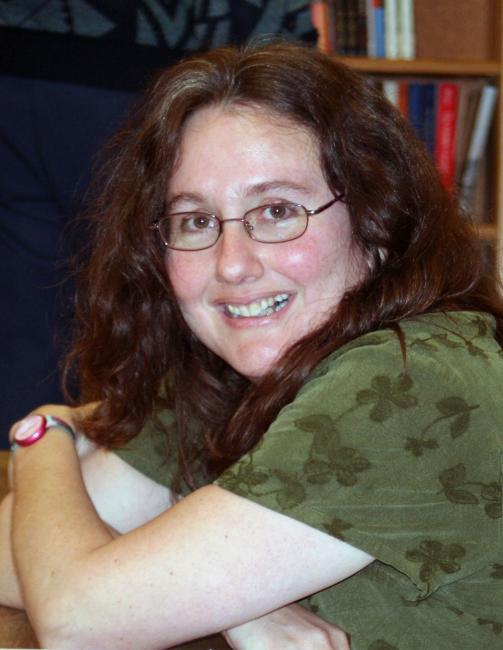
Naomi Seidman is Chancellor Jackman Professor in the Arts at the University of Toronto and was previously Koret Professor of Jewish Culture and the Director of the Richard S. Dinner Center for Jewish Studies at the Graduate Theological Union in Berkeley. In 2016, she received a Guggenheim Fellowship.
She comes from an Orthodox, Yiddish-speaking rabbinic family, and was a daughter of Hassidic Jewish writer Dr. Hillel Seidman. Her writings focus on the relationship between Judaism, literature, gender studies, translation studies, and sexuality.
Sabina Brukner
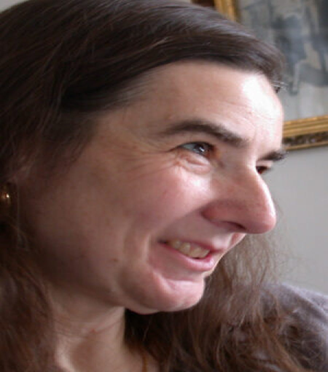
Sabina Brukner, born to Holocaust survivor parents from Poland (her mother was best friends with Rosenfarb’s younger sister Henya growing up, and attended the same school as Rosenfarb, the Vladimir Medem Shule in Łódź), Brukner came to the United States when she was two, spoke Yiddish at home, and attended the Bundist Yiddishist Camp Hemshekh for eleven summers––Folksbiene Artistic Director Zalmen Mlotek was the camp’s Musical Director. Brukner has continued to be involved in Yiddish cultural activities throughout her life, such as Yugntruf and attending Yidish-Vokh, and was behind the effort to bring Rosenfarb to KlezKamp as an honored guest in 2004. She joined the Folksbiene in December 2017, shortly before their acclaimed production of Fidler afn dakh, and is currently the Director of the Manhattan Workers Circle School.
Miriam Udel
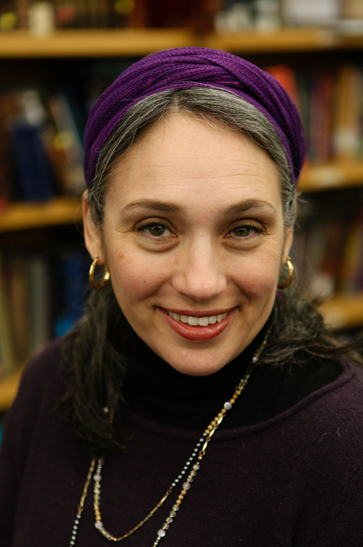
Miriam Udel is associate professor of German Studies and Jewish Studies at Emory University, where her teaching focuses on Yiddish language, literature, and culture. She holds an AB in Near Eastern Languages and Civilizations from Harvard University, as well as a PhD in Comparative Literature from the same institution. She is the author of Never Better! The Modern Jewish Picaresque (University of Michigan Press, 2016), winner of a National Jewish Book Award in Modern Jewish Thought and Experience. More recently, she has turned to studying and translating Yiddish children’s literature. As part of the inaugural class of Translation Fellows, she began work on an anthology of stories and poems for juvenile readers called Honey on the Page, published by New York University Press in 2020. That work led her to her recent Yiddish Book Center Translation Fellow project: translating Khaver Paver’s linked stories about Labzik and Vovik, two generations of winsome canines and the progressive Brownsville family that adopts them.
Mindl Cohen
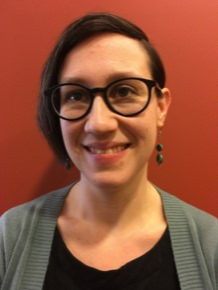
Mindl Cohen is the academic director at the Yiddish Book Center. Mindl has a PhD in Comparative Literature with an emphasis in Jewish Studies from the University of California, Berkeley. She is a western Massachusetts native; she grew up in Greenfield and attended Hampshire College, where her studies focused on German and German-Jewish literature. As an undergraduate, Mindl participated in the Yiddish Book Center's Steiner Summer Yiddish Program, which set her on the path of Yiddish Studies, and more recently she was a Yiddish Book Center Translation Fellow. Before coming (back) to the Center, she worked as the Editor-in-Chief for In geveb: A Journal of Yiddish Studies, and taught Yiddish language at Harvard University.
Jessica Kirzane
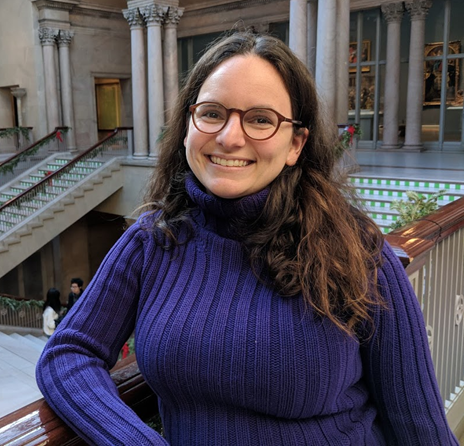
Dr. Jessica Kirzane is a scholar of Yiddish Studies, specializing in questions of race, gender, and regionalism in American Yiddish fiction. She has translated two Yiddish novels by Miriam Karpilove. Judith was published by Farlag Press in January 2022. Diary of a Lonely Girl, or the Battle Against Free Love was published by Syracuse University Press in 2020. Dr. Kirzane’s work to translate Yiddish women writers was recently featured in the the New York Times. After receiving her Ph.D. in Yiddish studies from Columbia University in 2017, Dr. Kirzane became the Assistant Instructional Professor in Yiddish at the University of Chicago. She teaches all levels of Yiddish language, as well as courses in Yiddish culture and literature. She also serves the Editor-in-Chief of In geveb: A Journal of Yiddish Studies.
Allison Schachter
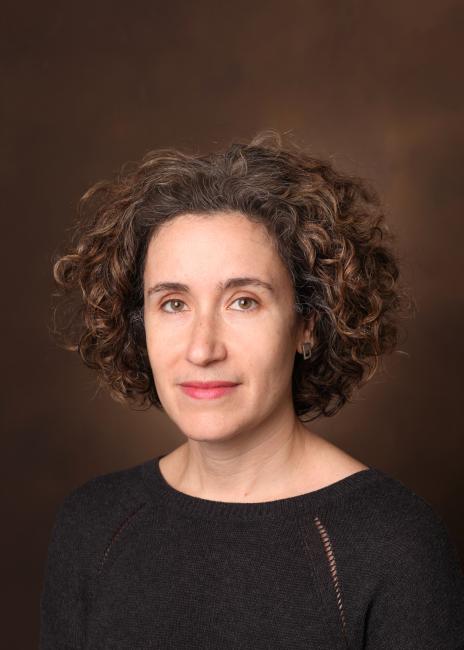
Allison Schachter is Associate Professor of Jewish Studies and English at Vanderbilt University, and currently serves as Chair of the Department of Jewish Studies. She received her PhD from the University of California, Berkeley, in 2006. Her research focuses on how writers and artists responded to the historical transformations of the nineteenth and twentieth centuries, including the rise of nationalism, the explosion of revolutionary movements, and the radical transformations of gender norms. Trained as a comparativist, her research encompasses Hebrew, Yiddish, English, and French literature. She is the author of Diasporic Modernisms: Hebrew and Yiddish Literature in the Twentieth Century (Oxford University Press, 2012) and Women Writing Jewish Modernity, 1919-1939 (Northwestern University Press, 2021). She is the co-translator, with Jordan Finkin, of Fradl Shtok, From the Jewish Provinces, Selected Stories (Northwestern University Press, 2021).
Jordan Finkin
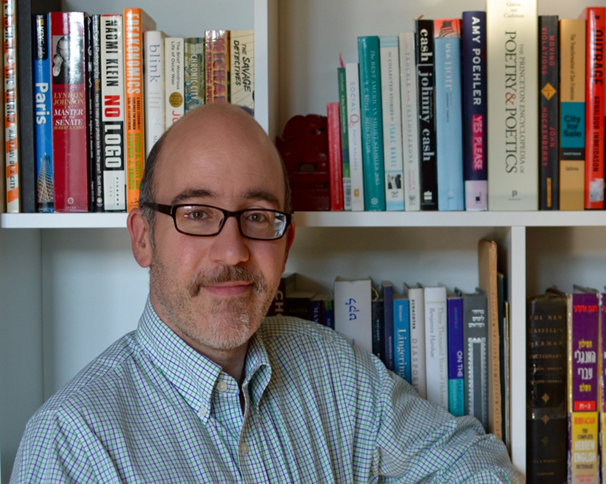
Jordan Finkin is a Rare Book and Manuscript Librarian at the Klau Library of Hebrew Union College in Cincinnati. A specialist in modern Jewish literatures and Hebrew and Yiddish poetry, he is the author of several books as well as numerous scholarly essays and articles. His most recent book, Exile as Home: The Cosmopolitan Poetics of Leyb Naydus, explores the poetry of the Yiddish poet Leyb Naydus. He is also a literary translator; his translation of Leyb Rashkin’s novel, The People of Godlbozhits, appeared in 2017. He is the co-translator, with Allison Schachter, of Fradl Shtok, From the Jewish Provinces, Selected Stories (Northwestern University Press, 2021).
Julie Sharff
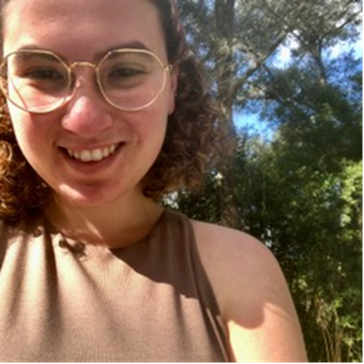
Julie Sharff (she/her) is a doctoral student in the Department for the Study of Religion at the University of Toronto. Julie completed her BA at Florida State University in 2019. In 2021, she completed her MA in Jewish Studies from Indiana University, defending her thesis titled “Reading Between the Lines: Consent and Coercion in Yiddish Women’s Literature.” Her work broadly focuses on Yiddish literature written by women and transnational Jewish identity in the late 19th and early 20th centuries.
